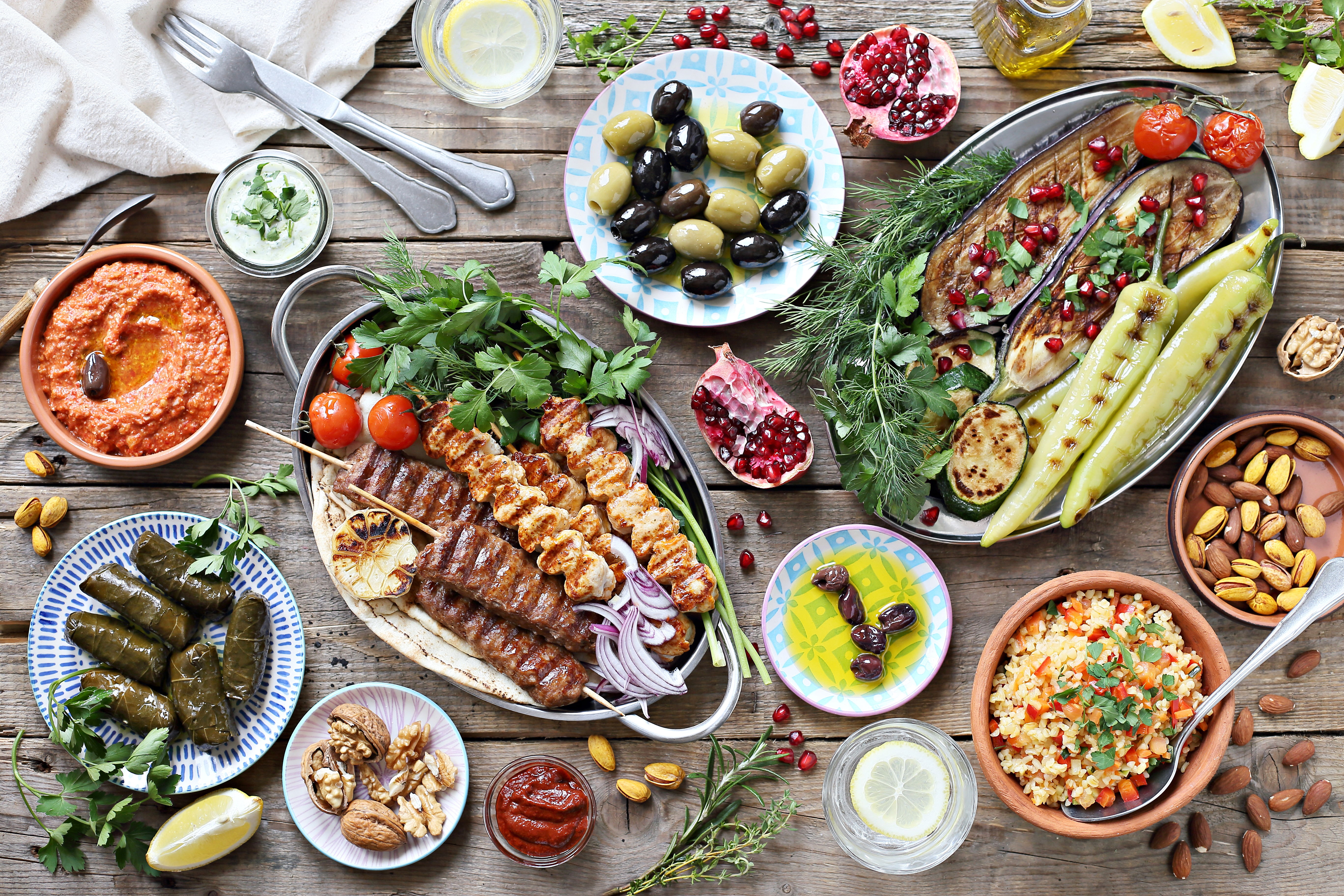Blue Zones: The World's Path to Health and Longevity
One of the greatest challenges today is the progress of industry and civilization, which unfortunately has a negative impact on our health and well-being. Despite having access to a variety of foods, we often choose ultra-processed options for their convenience and speed. While gyms, leisure, and sports centres are common in most cities, many prefer to relax on the couch, watching TV with a beer or glass of wine. Opting for a quick burger at McDonald's is easier than preparing a healthy meal from scratch. We inhabit environments with air and water pollution, tainted with heavy metals and plastics. Daily evidence suggests that industrial civilization is compromising our health, damaging the planet, and transforming it into a wasteland.
Nevertheless, there are certain areas in the world where chronic diseases are less common and life expectancy is significantly higher. These areas are known as Blue Zones, which are inhabited by some of the oldest people on the planet.
The concept of "Blue Zone" was initially coined by author Dan Buettner, who researched regions around the globe where people enjoy remarkably long lifespans.
In his book called The Blue Zones, Dan Buettner described five known Blue Zones.
Where are Blue Zones?
- Icaria (Greece): Icaria is a Greek island where the diet is predominantly Mediterranean, featuring olive oil, red wine, and locally grown vegetables.
- Ogliastra, Sardinia (Italy): The Ogliastra region in Sardinia is renowned for having some of the world's oldest men. They reside in the mountains, often working on farms and consuming a significant amount of red wine.
- Okinawa (Japan): Okinawa is renowned for having the world's oldest women, who consume a significant amount of soy-based foods and engage in tai chi, a form of meditative exercise.
- Nicoya Peninsula (Costa Rica):The diet of Nicoya primarily consists of beans and corn tortillas. Inhabitants of this region often engage in physical labor well into their later years and possess a life purpose philosophy termed "plan de vida."
- The Seventh-day Adventists in Loma Linda, California (USA): Seventh-day Adventists are a devout religious community. They adhere to a vegetarian diet and often reside in close-knit communities.
Numerous studies have shown that certain regions have exceptionally high numbers of nonagenarians and centenarians, individuals who live beyond 90 and 100 years, respectively.
While genetics play a role in determining our lifespan and disease susceptibility, lifestyle choices may have a more significant impact.
Common habits among those in Blue Zones include a diet that is 95% plant-based. Most are not strictly vegetarian but consume meat about five times per month. Their diets are abundant in vegetables, which provide fiber, vitamins, and minerals.
They also consume a variety of legumes, such as beans, peas, lentils, and chickpeas, which are rich in protein and fiber. Whole grains, another staple, are linked to lower blood pressure and decreased risks of colorectal cancer and heart disease mortality. Nuts, a source of fiber, protein, and both polyunsaturated and monounsaturated fats, are also consumed regularly.
Each Blue Zone has unique dietary traits; for instance, fish, a rich source of Omega-3 fats crucial for heart and brain health, is commonly consumed in Icaria and Sardinia, contributing to slower brain aging and reduced heart disease risk.

People living in Blue Zones reduce their calorie intake and they practice fasting
Another habit prevalent in the Blue Zones is the practice of consuming fewer calories and periodic fasting. Numerous studies indicate that a reduced calorie intake may be linked to increased longevity. For instance, the Okinawans adhere to the "hara hachi bu" or 80% rule, which involves stopping eating when they are 80% full instead of completely full. This practice helps prevent overconsumption of calories, weight gain, and chronic diseases.
In addition to calorie intake, the pace at which one eats also appears to have a significant effect. Several studies have indicated that eating slowly may help diminish hunger and enhance the sensation of fullness compared to eating quickly. By consuming food at a leisurely pace and stopping when you're 80% full, you might ingest fewer calories and sustain a feeling of fullness for a longer period.
Furthermore, individuals residing in Blue Zones lead highly active lifestyles. Their exercise is integrated into their daily routines through activities like gardening, cooking, and walking. They don't typically go to gyms or run marathons; instead, they stay active throughout the day rather than doing short, intense gym sessions.
A study of men in the Sardinian Blue Zone linked their longevity to raising farm animals, residing on mountainous terrain, and walking greater distances to their workplace. This correlation between habitual physical activity and lifespan was also evident in a study involving over 13,000 men, where the distance walked or the number of stairs climbed daily was indicative of their life expectancy.
Further research has highlighted the role of regular exercise in lowering the risks of cancer, heart disease, and premature mortality.

Alongside exercise, adequate rest and a good night's sleep are also crucial for a long and healthy life. Inhabitants of the Blue Zones typically get enough sleep. Studies have shown that insufficient sleep, or excessive sleep, can greatly increase mortality risk, including death from heart disease or stroke.
An extensive review of 35 studies determined that seven hours is the ideal amount of sleep. Deviating significantly from this duration, either sleeping much less or much more, was linked to a higher risk of death.
Beyond diet, exercise, and rest, various social and lifestyle factors prevalent in the Blue Zones also play a role in the residents' longevity.
A distinctive trait of individuals in Blue Zones is their sense of life purpose. In Okinawa, it's referred to as "Ikigai," and in Nicoya, it's "plan de vida." Regrettably, many in the Western world have lost or lack a life purpose.
This absence can impact every facet of life and mental well-being, leading to persistent feelings of boredom, emptiness, and dissatisfaction, as if life lacks meaning. It can influence one's relationships, work, and social interactions, potentially resulting in depression.
In contrast, Blue Zone inhabitants possess a robust life purpose. They are clear on their reasons for waking each morning and what sustains their happiness and vitality. They recognize what brings them joy and contentment, often engaging in activities and communities that provide a fulfilling and satisfying milieu.

In many Blue Zones, it's common for grandparents to live with their families
Research indicates that grandparents caring for grandchildren tend to have a reduced risk of mortality. Family dynamics extend beyond the individual, embodying collective strength.
Contrarily, in the Western world, elderly parents and grandparents are frequently placed in care homes due to the children's lack of time or ability to provide care. This leads to weakened family ties and shifts the burden of elderly care to social services and the healthcare system, contributing to its overburdening.
In Blue Zones, centenarians often have their grandparents close or living with them, which has been associated with lower rates of mortality and illness for both generations.
A study revealed that grandparents who occasionally cared for their grandchildren had a lifespan extension of up to five years and a one-third reduction in mortality risk over two decades.
Individuals in Blue Zones benefit from rich social interactions
Strong social bonds are known to fortify the aging brain. Being part of a community combats loneliness and isolation, which in turn can guard against various serious health issues.
Importantly, Blue Zone inhabitants are adept at de-stressing. In a world where stress is a major health threat, leading to chronic inflammation, heart disease, and a link to dementia and Alzheimer's disease, they choose traditional, simple practices for relaxation and rejuvenation.
They spend time outdoors, soaking up sunlight to naturally produce vitamin D, which results in stronger, healthier bones. They are also highly sociable, frequently gathering with friends for enjoyment or support. They engage in prayer or meditation and approach life with a light-hearted attitude.
In Sardinia, for example, residents enjoy sharing jokes with friends in the afternoon, as most Sardinians have a knack for comedy. Laughter is beneficial for the soul and reduces stress levels. Hence, we could all take a leaf out of the Sardinian book and incorporate more laughter into our lives.

Many may not realize that the principles of simplicity and happiness are not novel. Centuries ago, people led simpler, more content lives by adhering to what are now known as Blue Zones rules.
Gradually, global and industrial advancements have transformed our existence, leading to increased stress and discontent.
The prevalence of ultra-processed foods, pollution, stress, an imbalance between work and personal life, and weak social and family ties detrimentally affect our health and well-being. The decision to make a change towards a healthier and happier life is yours. It begins with you and your willingness to transform your life into a Blue Zone!
If you enjoyed this article you may want to read TRANSFORM YOUR LIFE INTO A BLUE ZONE
References:
Andrade A, Kresge DL, Teixeira PJ, Baptista F, Melanson KJ - Does eating slowly influence appetite and energy intake when water intake is controlled? International of Journal Behavioural Nutrition and Physical Activity 21(9): 135, 2012.
Buettner D, Skemp S - Blue Zones: Lessons From the World's Longest Lived. American Journal Lifestyle Medicine 10(5): 318-321, 2016.
Cappuccio F, D’Elia L, Strazzullo P, Miller MA - Sleep duration and all-cause mortality: a systematic review and meta-analysis of prospective studies. Sleep 33(5):585-92, 2010.
Chowdhury R, Stevens S, Gorman D, Pan A, Warnakula S, Chwdhury S, Ward H, Johnson L, Crowe F, Hu FB, Franco OH - Association between fish consumption, long chain omega 3 fatty acids, and risk of cerebrovascular disease: systematic review and meta-analysis. BMJ 30:345:e6698, 2012.
Darmadi - Blackberry I, Wahlqvist ML, Kouris-Bazos A, Steen B, Lukito W, Horie Y, Horie K - Legumes: the most important dietary predictor of survival in older people of different ethnicities. Asoa Pacific Journal of Clinical Nutrition 13(2):217-20, 2004.
Hjelmborg JvB, Iachine I, Skytthe A, Vaupe; JW, McGue M, Koskenvuo M, Kaprio J, Pedersen NL, Christensen K - Genetic influence on human lifespan and longevity. Human Genetics 119(3):312-21, 2006.
Luo Ch, Zhang Y, Ding Y, Shan Z, Chen S, Yu M, Hu FB, Liu L - Nut consumption and risk of type 2 diabetes, cardiovascular disease, and all-cause mortality: a systematic review and meta-analysis. American Journal of Clinical Nutrition 100(1):256-69, 2014.
Menotti A, Kromhout D, Blackburn H, Fidanza F, Buzina R, Nissinen A - Food intake patterns and 25-year mortality from coronary heart disease: cross-cultural correlations in the Seven Countries Study. The Seven Countries Study Research Group. European Journal of Epidemiology 15(6):507-15, 1999.
Pes GM, Dore MP, Tsofliou F, Poulain M - Diet and longevity in the Blue Zones: A set-and-forget issue? Maturitas 164:31-37, 2022.
Pes GM, Tolu F, Dore MP, Sechi GP, Errigo A, Canelada A, Poulain M - Male longevity in Sardinia, a review of historical sources supporting a causal link with dietary factors. European Journal of Clinical Nutrition. 69(4): 411-8, 2015.
Pes GM, Tolu F, Poulain M, Errigo A, Masala S, Pitrobelli A, Battistini NC, Maiolo M - Lifestyle and nutrition related to male longevity in Sardinia: an ecological study. Nutrion and Metabolism in Cardiovascular Disease 23(3):212-9, 2013.
Poulain M, Pes GM, Grasland C, Carru C, Ferrucci L, Baggio G, Franceschi C, Deiana L - Identification of a geographic area characterized by extreme longevity in the Sardinia island: the AKEA study. Experimental Gerontology 39(9):1423-9, 2004.
Salaris L, Poulain M, Samaras TT - Height and survival at older ages among men born in an island village in Sardinia (Italy), 1866-2006. Biodemography Social Biology 58(1):1-13, 2012.
Shen X, Wu Y, Zhang D - Night time sleep duration, 24-hour sleep duration and risk of all-cause mortality among adults: a meta-analysis of prospective cohort studies. Scientific Reports 22:6:21480, 2016.
Simopoulos AP - Omega-3 fatty acids in health and disease and in growth and development. American Journal of Clinical Nutrition 54(3):438-63, 1991.
Willcox BJ, Willcox DC, He Q, Curb JD, Suzuki M - Siblings of Okinawan centenarians share lifelong mortality advantages. Journal of Gerontology: A Biological Sciences and Medical Sciences 61(4):345-54, 2006.
Yaribeygi H, Panahi Y, Sahraei H, Johnston TP, Sahebkar A - The impact of stress on body function: A review. EXCLI Journal 21:16:1057-1072, 2017.
Zong G, Gao A, Hu FB, Sun Q - Whole Grain Intake and Mortality From All Causes, Cardiovascular Disease, and Cancer: A Meta-Analysis of Prospective Cohort Studies. Circulation 14;133(24):2370-80, 2016.
Example Text